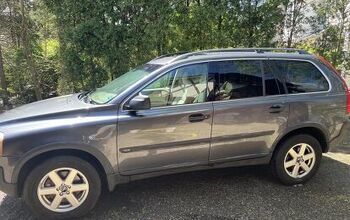Uber Offering COVID-19 Contract Tracing Data to Government Entities

Uber Technologies Inc. has kicked off a new service that provides public health officials immediate access to data on drivers and riders who may have been in contact with someone infected with COVID-19. Weirdly, the company decided against announcing the sharing of your whereabouts with the government with any fanfare. Perhaps they thought average people wouldn’t be interested, or maybe that broadcasting their own participatory role in crafting a nightmare dystopia could be bad for business.
Then again, maybe this is exactly the kind of mass surveillance we need to flatten the curve, stop the spread, or whatever slogan is currently the trendiest. Worried? Don’t be. Uber said this service will be offered free of charge, meaning you don’t even have to spend any additional money to have your information shared.
What a sweet deal!
As this isn’t a medical journal, we can’t speak to the effectiveness of this strategy. We’ve seen it floating around for a while, with Big Tech gleefully eager to lend a hand and help combat the pandemic through contract tracing applications. You may have even seen one pop up on your phone recently following recent software update. From what we’ve seen, contract tracing has plenty of advocates and detractors.
Uber has actually been sharing data for months at this point, according to Reuters. The firm has only gotten vocal about it lately to promote itself to government health officials around the world. Data is collected and then sold to governments so health agencies can decide which persons need to be placed in quarantine.
From Reuters:
Uber has long provided data to U.S. law enforcement officials in emergencies or criminal investigations, companies officials said. It first began to focus on health-related issues in 2019, when a resurgence of U.S. measles cases prompted several health departments to request data, the officials said.
In January, company executives flew to Los Angeles to meet with the local health department and CDC officials to discuss how Uber’s data could best be used, according to Uber’s chief of global law enforcement, Mike Sullivan.
The discussion quickly turned to the novel coronavirus, which at the time was only beginning to spread outside of China.
“Our timing ended up being beneficial in that it allowed us to get ahead before COVID started ramping up globally,” said Sullivan, a veteran U.S. prosecutor who leads a team of 100 Uber employees handling data requests around the clock.
Uber reportedly designed a portal for exclusive utilization by public health departments. Information can be broken down by either trip receipts or passenger name. From there, the government can tell the company what actions they want it to take in regard to the paying customer they’ve ratted out to the feds.“We want to make sure that they are the experts and we follow their recommendations” on whether to block temporarily a driver/rider from being able to travel, explained Sullivan. Though the company automatically bans anybody it believes is infected automatically for two weeks.Government response varies between regions, with the United States being more passive/fractured than European nations or Australia. Tracing requests in the U.S. has proven more sporadic, often with some states taking a bigger interest in it than others — something which is also true of Canada. Reuters noted that Lyft also confirmed it’s been providing data to North American health officials through its Law Enforcement Request system. It declined to provide additional details however, hysterically citing privacy.For what it’s worth, Uber told us it doesn’t share anything that isn’t pertinent to the public health issue at hand, but that’s an evolving definition left largely to its own discretion. Governments may also decide that additional data could be useful and request it — making it seem like the customer has less control of their data than we’d hope. It’s quite the pickle. Nobody seems eager to get this virus, but the amount that we’ve had to give up just to remain safe (though that seems a relative term based on infection/death rates) has already been a big ask.[Image: MikeDotta/Shutterstock]
A staunch consumer advocate tracking industry trends and regulation. Before joining TTAC, Matt spent a decade working for marketing and research firms based in NYC. Clients included several of the world’s largest automakers, global tire brands, and aftermarket part suppliers. Dissatisfied with the corporate world and resentful of having to wear suits everyday, he pivoted to writing about cars. Since then, that man has become an ardent supporter of the right-to-repair movement, been interviewed on the auto industry by national radio broadcasts, driven more rental cars than anyone ever should, participated in amateur rallying events, and received the requisite minimum training as sanctioned by the SCCA. Handy with a wrench, Matt grew up surrounded by Detroit auto workers and managed to get a pizza delivery job before he was legally eligible. He later found himself driving box trucks through Manhattan, guaranteeing future sympathy for actual truckers. He continues to conduct research pertaining to the automotive sector as an independent contractor and has since moved back to his native Michigan, closer to where the cars are born. A contrarian, Matt claims to prefer understeer — stating that front and all-wheel drive vehicles cater best to his driving style.
More by Matt Posky
Latest Car Reviews
Read moreLatest Product Reviews
Read moreRecent Comments
- W Conrad I'm not afraid of them, but they aren't needed for everyone or everywhere. Long haul and highway driving sure, but in the city, nope.
- Jalop1991 In a manner similar to PHEV being the correct answer, I declare RPVs to be the correct answer here.We're doing it with certain aircraft; why not with cars on the ground, using hardware and tools like Telsa's "FSD" or GM's "SuperCruise" as the base?Take the local Uber driver out of the car, and put him in a professional centralized environment from where he drives me around. The system and the individual car can have awareness as well as gates, but he's responsible for the driving.Put the tech into my car, and let me buy it as needed. I need someone else to drive me home; hit the button and voila, I've hired a driver for the moment. I don't want to drive 11 hours to my vacation spot; hire the remote pilot for that. When I get there, I have my car and he's still at his normal location, piloting cars for other people.The system would allow for driver rest period, like what's required for truckers, so I might end up with multiple people driving me to the coast. I don't care. And they don't have to be physically with me, therefore they can be way cheaper.Charge taxi-type per-mile rates. For long drives, offer per-trip rates. Offer subscriptions, including miles/hours. Whatever.(And for grins, dress the remote pilots all as Johnnie.)Start this out with big rigs. Take the trucker away from the long haul driving, and let him be there for emergencies and the short haul parts of the trip.And in a manner similar to PHEVs being discredited, I fully expect to be razzed for this brilliant idea (not unlike how Alan Kay wasn't recognized until many many years later for his Dynabook vision).
- B-BodyBuick84 Not afraid of AV's as I highly doubt they will ever be %100 viable for our roads. Stop-and-go downtown city or rush hour highway traffic? I can see that, but otherwise there's simply too many variables. Bad weather conditions, faded road lines or markings, reflective surfaces with glare, etc. There's also the issue of cultural norms. About a decade ago there was actually an online test called 'The Morality Machine' one could do online where you were in control of an AV and choose what action to take when a crash was inevitable. I think something like 2.5 million people across the world participated? For example, do you hit and most likely kill the elderly couple strolling across the crosswalk or crash the vehicle into a cement barrier and almost certainly cause the death of the vehicle occupants? What if it's a parent and child? In N. America 98% of people choose to hit the elderly couple and save themselves while in Asia, the exact opposite happened where 98% choose to hit the parent and child. Why? Cultural differences. Asia puts a lot of emphasis on respecting their elderly while N. America has a culture of 'save/ protect the children'. Are these AV's going to respect that culture? Is a VW Jetta or Buick Envision AV going to have different programming depending on whether it's sold in Canada or Taiwan? how's that going to effect legislation and legal battles when a crash inevitibly does happen? These are the true barriers to mass AV adoption, and in the 10 years since that test came out, there has been zero answers or progress on this matter. So no, I'm not afraid of AV's simply because with the exception of a few specific situations, most avenues are going to prove to be a dead-end for automakers.
- Mike Bradley Autonomous cars were developed in Silicon Valley. For new products there, the standard business plan is to put a barely-functioning product on the market right away and wait for the early-adopter customers to find the flaws. That's exactly what's happened. Detroit's plan is pretty much the opposite, but Detroit isn't developing this product. That's why dealers, for instance, haven't been trained in the cars.
- Dartman https://apnews.com/article/artificial-intelligence-fighter-jets-air-force-6a1100c96a73ca9b7f41cbd6a2753fdaAutonomous/Ai is here now. The question is implementation and acceptance.


































Comments
Join the conversation
Way back in pre 2010, clutching my new Android smartphone, I checked with Google after a few days. It told me how to get to work, even so far as to tell me to turn left out of my driveway. I really didn't need the advice, having covered the route for 25 years. I turned off location, and have wandered blindly ever since, except on vacation outside my province -- first thing I do when I get a new phone is turn off location. Nobody's business but mine. Google thinks I live in Montreal whenever I deign to use the Chrome browser, but I'm 800 miles away. Montreal is where my cellphone provider hangs out. Baruth suggested using DuckDuckGo as my search engine some years ago, and so I do -- no tracking. Young people like my niece seem perfectly happy broadcasting their whereabouts, and since all these creepy companies want to sell what data they gather, I'd say any chance of personal privacy went up the spout years ago. We say we're democratic and those dastardly Chinese spy on their citizens and give them a social rating. If someone can tell me the practical difference between that and the secret way we go about it here with companies handing over their info on us behind our backs, my retort is that the difference lies somewhere between zero and nothing. We just get to bleat we're free.
If only "corporations" could go to prison, what a wonderful world this could be.